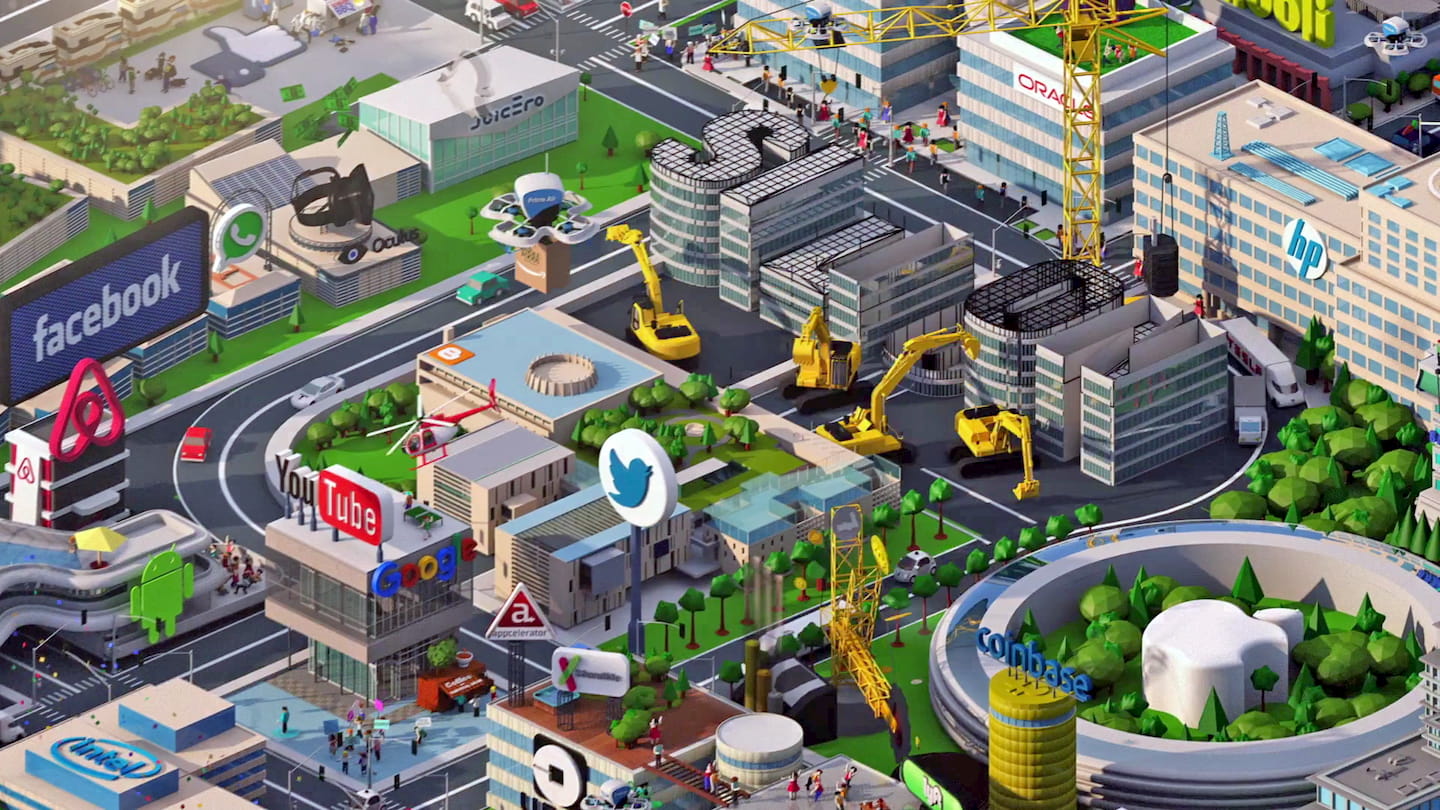together, we can make things better
Say you like some of the ideas presented in the previous six sections of this essay. What now?
In this final section I'll propose that we can bring a ”making computers better“ mindset to our industry conversation; that you can spend your career capital in this area; and that we can foster new sources of funding and institutions under that theme. And for me personally, this topic unifies my career motivations, tying together what I've done in the last two decades and what I intend to do in the future.
Starting with our industry conversation: how do we carve out space to discuss making computers better?
Sometimes it feels like all tech discussion—in personal blogs and podcasts, on Twitter, in the tech press—is about chasing the next big trend. Bitcoin is the future of money, AR will change everything, voice control will make screens irrelevant, no-code is disrupting something or other. The counterpoint is trend-pushback: FAANG is too powerful and should be regulated, social media is destroying our society, and I don't like computers anymore so bring back the late 90s web.

Silicon Valley culture often concerns itself more with status-seeking rather than how technology can improve people's lives. HBO's Silicon Valley series is parody that comes strangely close to truth.
One alternative to this dualist conversation about trends is to talk about technology in the context of goals. My goals include how computers and the internet can support us in our pursuit of noble endeavors like art, science, and self-improvement. What are yours?
We could choose to talk about technology choices—from programming languages to ERP systems to calendar apps—in the context of serving a particular person's needs, rather than their potential for world domination.
We can reference patio11's law to acknowledge that tech is huge now—it's less a single industry than a thread woven through every sector of the economy. We're creating a nearly-limitless variety of software for a nearly-limitless variety of people, problems, and circumstances. That allows us to get away from the winner-take-all thinking (”what's the next big thing?“) and instead think about niches (”what emerging technologies can make something we value as a society more accessible, more efficient, or more commonplace?“).
Next: what can you personally do with your career to make computers better.
If you're early in your tech career, step one is to build career capital by whatever means you can. But I suspect many people reading this already have amassed significant career capital, and that represents an opportunity.
If you're a designer or engineer that has your pick of employers, or a journalist/vlogger/tweeter with a significant audience, or an investor with funds to direct—you can use that to advance the goal of making computers better.
We all have market forces to satisfy: as a journalist you have to write articles that gets clicks, but does the world really need to spend more digital ink on rumors about the number of megapixels in the next phone camera, or is there a better story in the role of computational notebooks in astronomy? As an engineer considering employment offers, Netflix can offer you a big paycheck, but maybe another company offers a mission with more capability to unlock human potential?

Stripe Press probably offers lower near-term returns compared to other things Patrick Collison could be doing with his time. But this is a high-profile example of a person spending their career capital on longer-term intangibles.
We don't have enough role models here, but Andy Matuschak doing independent research to reinvent learning is one prominent example. I urge you to take an honest look at what career capital you do have, and then think about spending it on things that matter within the bounds of whatever is financially feasible for your life.
Zooming out beyond the individual level, I'd like to see new structures and institutions with a make-computers-better perspective.
I’d like to see more diverse types of institutions to work on technology progress; that’s our motivation in establishing Ink & Switch as a venue for independent research. And how about a venture capital or private equity fund with a ”making computers better“ or ”computing for good“ hypothesis, perhaps along the lines of cleantech?
Even a simple job board themed this way could be a start. People write me all the time asking ”How do I get into the tools-for-thought space?“ or ”Where can I get hired to work on independent research?" and I don't have a great answer for them.
Nonprofits and public benefit corps have some precedent here: Mozilla, EFF, Tor Project, Center for Humane Technology, Dat Foundation, and the venerable Apache Foundation. Most of these are built around a highly-technical or narrow subdomain; what's the Mozilla equivalent for rethinking the OS, or a data-storage solution that allows us to truly own our work, or sovereign identity?

Kyoto Prize-winners for robotics, medicine, and philosophy in 2016.
Part of the reason everyone follows the same status-seeking path in tech is that our only role models are creators of winner-take-all startups, e.g. Bill Gates or Mark Zuckerberg. Can we create new paths and new role models with grants and prizes? Something like Google Summer of Code or the Thiel fellowship (for up-and-comers) or the Nobel prize or Kyoto prize (for recognizing career-long greatness).
I'll end on a personal note. I mainly wrote this essay to crystalize my own motivations and clarify the unifying theme of my career.
Former colleagues and other tech-world people often express bemused surprise that I went from building cloud developer tools, to running a research lab, to developing an iPad app for thinking. And if in the future I work on (say) a local-first password manager, a programmer’s laptop, or a Kyoto prize for software—these might also seem like non-sequiturs.
My hope is that, reading this, you’ll see they’re all driven by the same motivation: making computers better. I want to make the problems computers create in our lives as small as possible, and make their potential to unlock our best human qualities as large as possible.
When I say I want to make computers better, what I’m really saying is that I want to see computers help make humans better.
Thanks for reading. ❤️